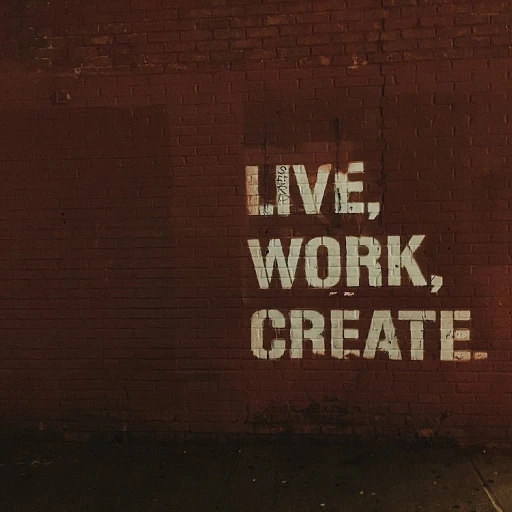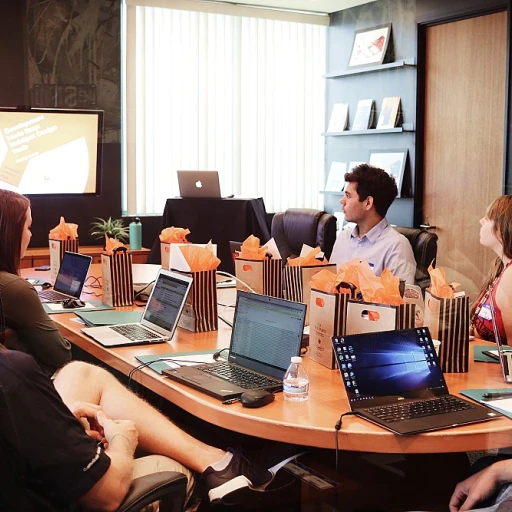
Understanding why recruitment agencies request references
Why do agencies insist on checking references?
Recruitment agencies play a crucial role in connecting candidates with employers, but their responsibility goes beyond just matching skills to job descriptions. One of the main reasons agencies request references is to verify the information provided by candidates during the recruitment process. This step helps ensure that the candidate’s work history, job performance, and work ethic align with what they have shared in their application and interviews.
Reference checks are not just a formality. They are a vital part of the hiring process that helps recruiters and hiring managers identify the best candidates for a job. By contacting previous employers or colleagues, agencies can confirm details about a candidate’s employment, such as job titles, responsibilities, and dates of employment. This process also helps uncover any red flags that might not appear during the interview or through a resume alone.
In today’s competitive job market, reference checking has become even more important. With the rise of remote work and increased job mobility, verifying a candidate’s background is essential for building trust between all parties involved. Recruitment agencies use reference checks to:
- Assess a candidate’s fit for the company culture and team dynamics
- Validate claims about skills, achievements, and work references
- Gain insights into a candidate’s strengths, weaknesses, and overall performance
- Reduce the risk of hiring mistakes that can impact business operations
For candidates, understanding why agencies check references will help you better prepare for the recruitment process and anticipate the types of questions recruiters may ask your references. If you want to learn more about the reasons behind reference requests and how they impact your job search, check out this in-depth guide on why recruitment agencies request references.
How reference checks fit into modern background check trends
The evolving landscape of reference checks in recruitment
Reference checks have become a central part of the hiring process, reflecting broader trends in how companies approach candidate evaluation. As recruitment agencies and hiring managers face increasing pressure to identify the best candidates, the role of references has expanded beyond a simple verification step. Today, reference checking is often integrated with other background check methods, forming a comprehensive process that helps employers make informed decisions.
Modern background check trends show a shift toward more thorough and structured reference interviews. Recruiters and talent acquisition teams are not just confirming employment dates or job titles—they are actively seeking insights into a candidate’s work ethic, problem-solving skills, and ability to collaborate. This deeper approach helps uncover potential red flags that may not surface during the interview or through automated checks.
- Recruitment agencies now use reference checks to validate a candidate’s fit for the company culture and specific job requirements.
- Reference checking is increasingly standardized, with agencies developing consistent questions to ensure fairness and reliability in the process.
- There is a growing emphasis on privacy and data protection, with agencies required to handle candidate information responsibly throughout the recruitment process.
For job seekers, understanding how reference checks fit into the overall background check process will help them prepare effectively and anticipate what recruiters may ask. As reference checking continues to evolve, staying informed about these trends is essential for both candidates and employers. For a deeper look at why agencies request references and how it impacts your job search, you can read more in this detailed guide on reference requests in recruitment.
What information recruitment agencies typically seek from references
Key Insights Sought by Recruiters During Reference Checks
Recruitment agencies conduct reference checks to gather a well-rounded view of a candidate’s suitability for a job. This process goes beyond simply verifying employment dates or job titles. Recruiters are looking for specific insights that will help them make informed hiring decisions and avoid potential red flags in the recruitment process.- Work Ethic and Performance: Recruiters often ask references about the candidate’s day-to-day work habits, reliability, and ability to meet deadlines. They want to know if the candidate consistently delivered quality results and how they handled pressure or setbacks during their previous employment.
- Interpersonal Skills: Questions about how the candidate interacted with colleagues, managers, and clients are common. Recruiters are interested in understanding the candidate’s communication style, teamwork, and conflict resolution abilities, as these are crucial for most work environments.
- Role-Specific Competencies: References may be asked to comment on the candidate’s technical skills or expertise relevant to the job. This helps hiring managers assess whether the candidate can handle the specific requirements of the new position.
- Reasons for Leaving Previous Jobs: Agencies often inquire about why the candidate left their previous company. This can reveal patterns that might affect future employment, such as frequent job changes or issues with workplace culture.
- Potential Red Flags: Recruiters are trained to listen for subtle warning signs, such as vague answers or hesitancy from references. These can indicate problems that might not appear in a standard background check or during the interview process.
Potential risks and privacy concerns for candidates
Balancing Transparency and Privacy in Reference Checks
Recruitment agencies play a crucial role in the hiring process, but when it comes to checking references, candidates often have valid concerns about privacy and potential risks. As reference checking becomes more common in the modern recruitment process, understanding these risks is essential for anyone navigating a job search.- Confidentiality of Shared Information: When a recruitment agency contacts your references, sensitive details about your previous employment, work ethic, and performance may be discussed. While agencies aim to verify your qualifications and suitability for the job, there is always a risk that confidential or subjective information could be shared without your knowledge.
- Potential for Bias: Not all references are objective. Sometimes, a previous manager or colleague may provide feedback that is influenced by personal opinions or unresolved conflicts. This can introduce bias into the reference check process, potentially impacting your chances of moving forward in the recruitment pipeline.
- Impact on Current Employment: If a recruitment agency contacts your current employer or colleagues before you have secured a job offer, it could put your current position at risk. This is especially relevant for candidates who are conducting a discreet job search and do not want their current company to know they are considering new opportunities.
- Data Protection and Consent: With increasing regulations around data privacy, candidates should be aware of how their personal information and reference details are stored and used by recruitment agencies. Always ensure you have given explicit consent for your references to be contacted, and ask how your data will be handled throughout the process.
How to prepare your references for agency contact
Helping Your References Help You
Preparing your references before a recruitment agency contacts them can make a significant difference in your job search. Many candidates underestimate how important it is to brief their references, but this step can help ensure a smoother hiring process and present you as a well-organized professional.- Reach out early: Contact your references as soon as you start your job search or know you’ll be undergoing a reference check. This gives them time to recall your work and prepare thoughtful responses.
- Share job details: Provide your references with information about the role, the company, and the skills or experiences you want to highlight. This context will help them tailor their answers to the needs of the hiring managers and recruiters.
- Review your achievements: Remind your references of specific projects, results, or work ethic examples that align with the job requirements. This can help them provide concrete examples during the reference interview.
- Clarify the process: Let your references know who will contact them, what kind of questions to expect, and how the reference checking process fits into the overall recruitment process. This transparency will help them feel more comfortable and prepared.
- Respect their time: Ask your references for their preferred contact method and availability. Recruitment agencies often work on tight timelines, so making it easy for your references to respond quickly will help keep your job application moving forward.
- Thank your references: After the reference check, always thank your references for their support. A simple message of appreciation can strengthen your professional relationships for future opportunities.
What to do if you have limited or negative references
Strategies for Navigating Limited or Negative References
Facing the reference check stage in the recruitment process can be stressful, especially if you have limited or less-than-ideal work references. Recruiters and hiring managers rely on references to validate your work ethic, skills, and fit for the job. However, not every candidate has a long list of glowing references, and that’s more common than you might think in today’s job market. Here are some practical steps that will help you manage this situation and still present yourself as a strong candidate:- Be Transparent Early: If you know your references are limited or might raise questions, address this proactively during the interview or when asked for references. Briefly explain your situation—such as being new to the workforce, having worked in small teams, or experiencing company closures.
- Offer Alternative References: If you lack traditional employment references, consider supervisors from internships, volunteer coordinators, clients, or even colleagues who can speak to your work ethic and skills. The key is to choose people who can genuinely comment on your performance and character.
- Prepare Your References: Contact your chosen references in advance. Let them know about the job you’re applying for and the type of questions recruiters might ask. This preparation will help them provide relevant and supportive feedback during the reference checking process.
- Address Negative Feedback: If you suspect a previous employer might provide a negative reference, discuss this with your recruiter. You can offer context about the situation and highlight what you learned or how you’ve grown since then. This shows maturity and self-awareness, qualities valued in talent acquisition.
- Highlight Other Strengths: Use your resume, interview, and application to showcase your achievements, skills, and positive feedback from other sources. Sometimes, a strong interview or portfolio can outweigh a single less-than-perfect reference.
- Stay Positive and Professional: Avoid criticizing previous employers or colleagues, even if you had a difficult experience. Focus on what you can control—your attitude, preparation, and communication throughout the hiring process.













